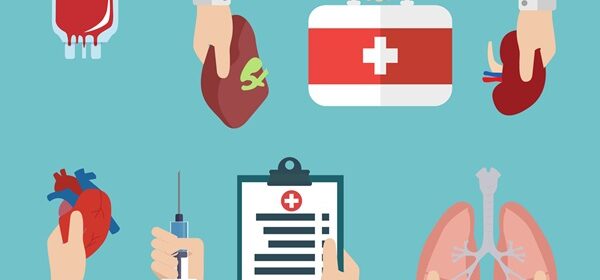Importance of Organ Donation after Death

SREEJA CHALLA – Organ transplantation is one of the few marvels that has changed the expansion of modern medicine. More than 28,000 people donate their organs every year. However, nearly 118,000 individuals are waiting for an organ transplant to live a healthier, more productive life. For people at the end stage of their battling disease, it is a matter of life and death.
Donating organs affects the donors more than the recipients. It can make families and loved ones feel like a part of their loved one is leaving them. However, it also brings comfort to many families knowing that from the traumatic event, there was a positive and the recipients would get the gift of life. This in turn can help a family work through the grieving process and deal with the loss of their loved one. One organ donor has the chance to save eight lives and the eye and tissue of as many as fifty people. This means fifty people that have the chance to move, see, and live better.
There is always the assumption that there is an age restriction and health restriction when it comes to registering as an organ donor. However, people of all races, ages, and pre-existing conditions can be potential donors. When the person dies, they are evaluated by the hospital based on their medical history. When it comes to donor donation, the most crucial factor for successful transplantation is finding whether the donor and the recipient have the same blood type. There is a national computerized system for the list of patients waiting for an organ donation which is curated by the United Network for Organ Sharing (UNOS). When a donor becomes available the system will find the best-matched receipt for every organ they donate. Some factors that need to be satisfied during the organ search are similar blood and tissue types, severity of patient illness, similar body size, and more. The UNOS system also takes into account the age of the organ recipient and their location. Once a match is found, the organ is sent to the recipient hospital as soon as possible. The match for a recipient starts from the local level and moves nationally if no matches are found locally.
According to Mather Hospital,“ Surveys show that 95 percent of adults in the United States support organ donation.” Although most people agree with the importance of organ donation, the biggest obstacle is getting people to register to become donors. The most important process is talking to your family members and conveying your wishes to be a donor because in the future they may need to speak on your behalf. Start by doing your research and talk to your loved ones about your decision. You can register as a donor through Donate Life Georgia.
Your driver’s license displays a heart symbol showing you are an organ donor, something we might not realize has a great deal of impact. It’s a gateway for many for a second chance in a life they probably thought was impossible. Your donation is what influences others to do great things in life.
Copy Editor – Shreyaanvi Sharath
Photography Source – https://www.pennmedicine.org/news/news-blog/2017/september/the-ins-and-outs-of-organ-donation
